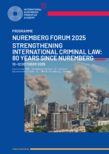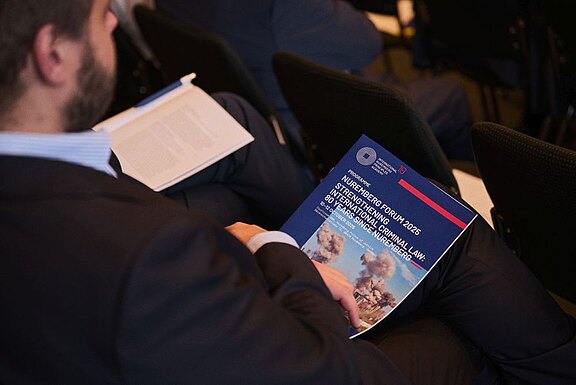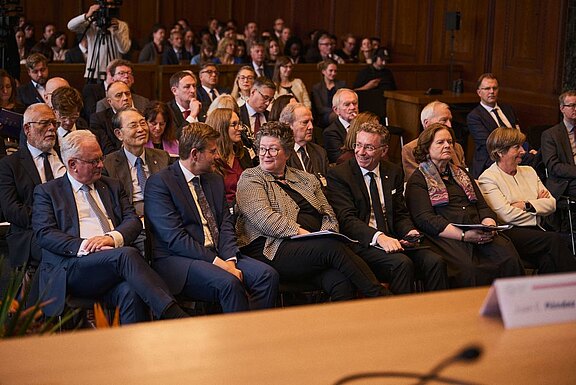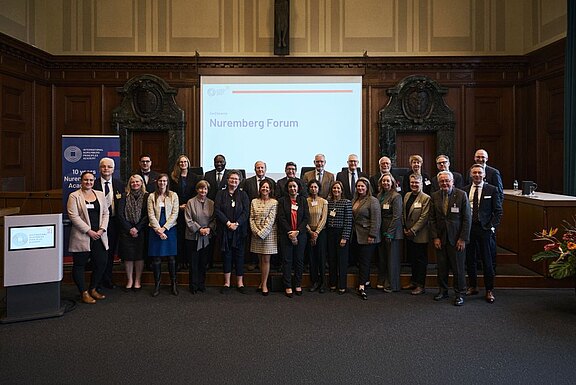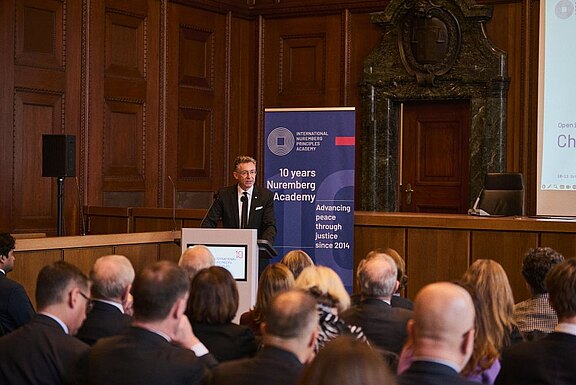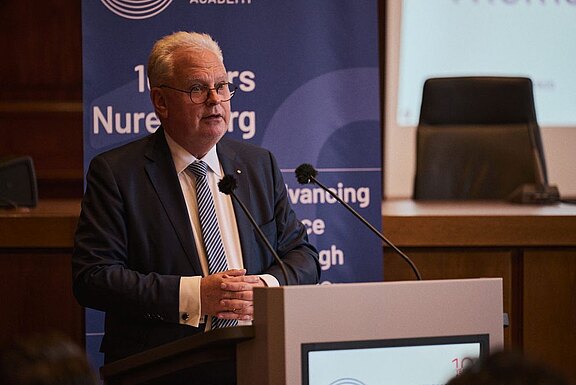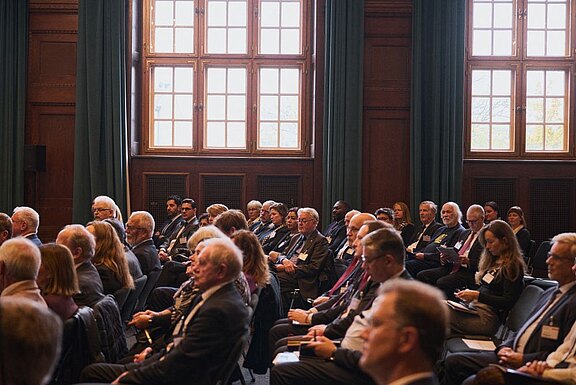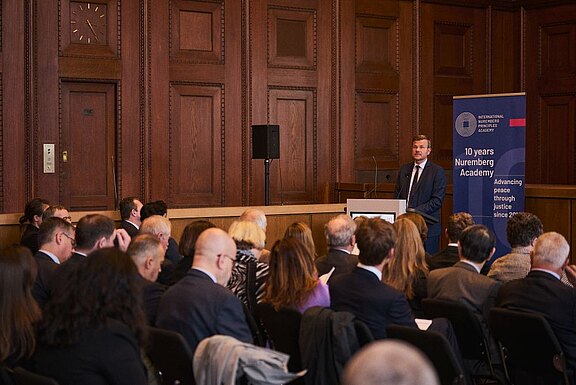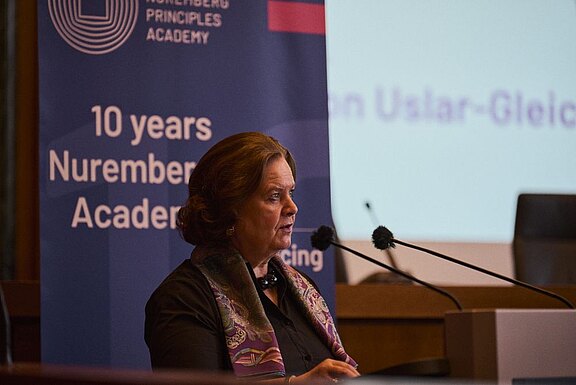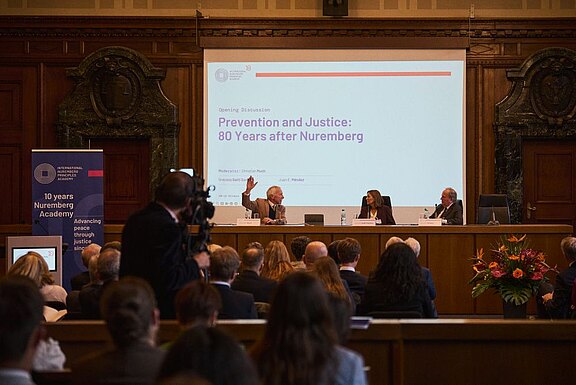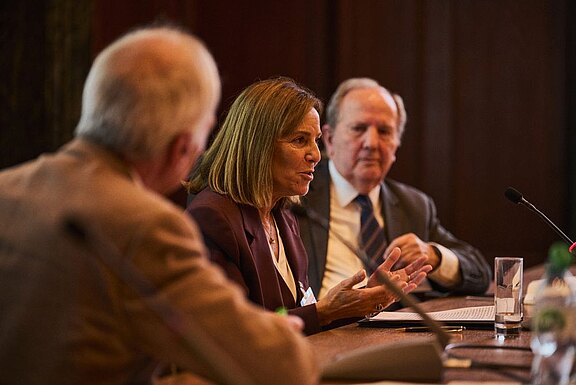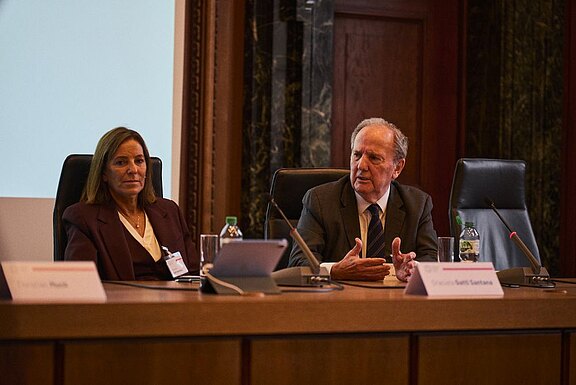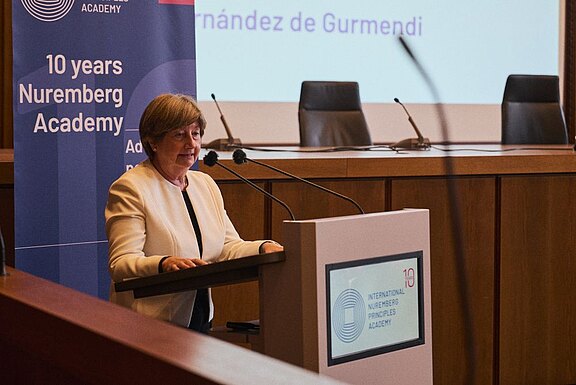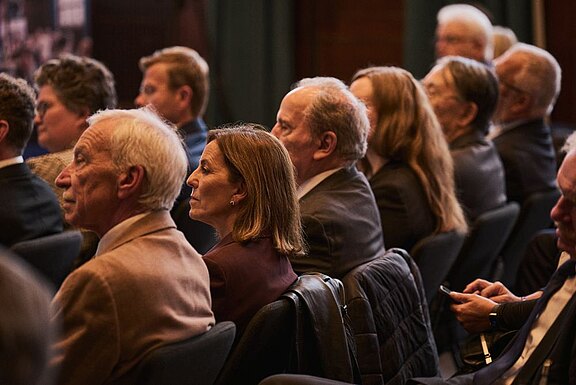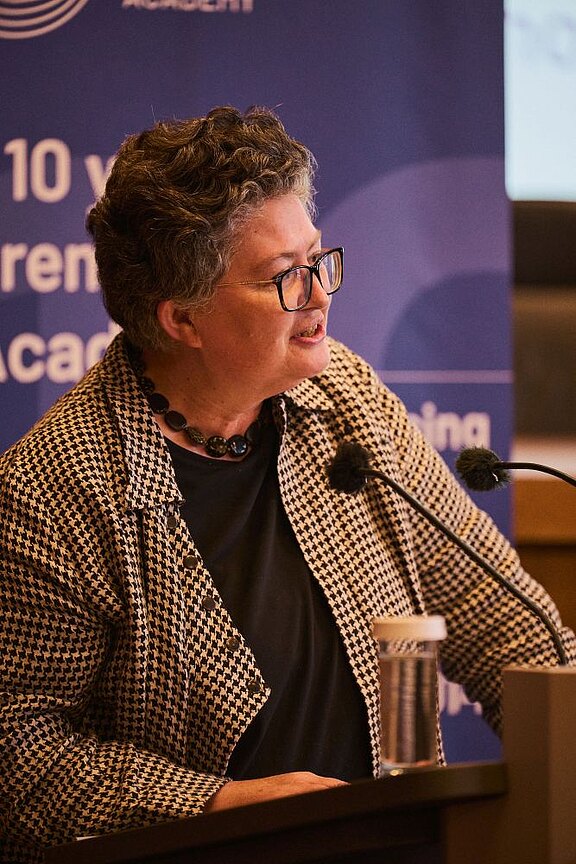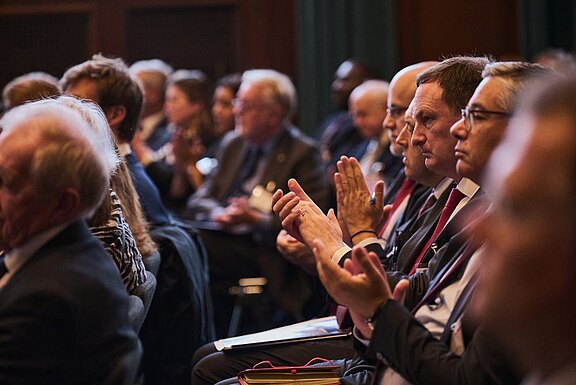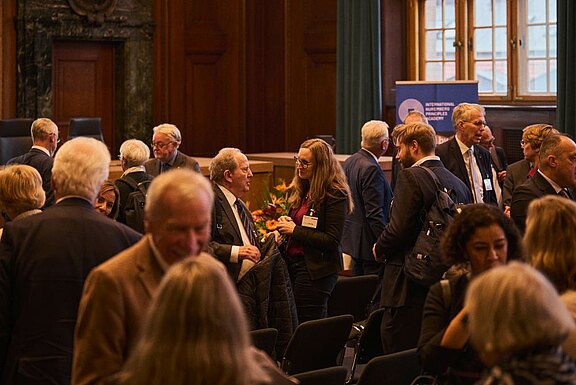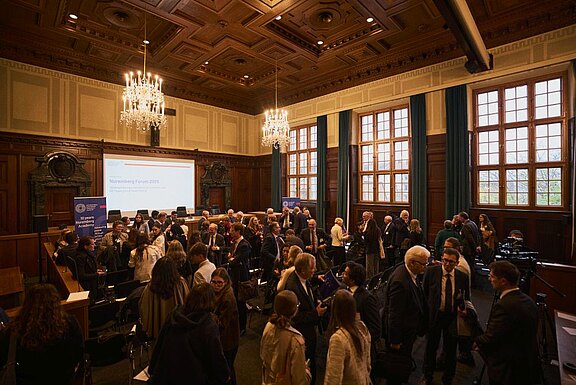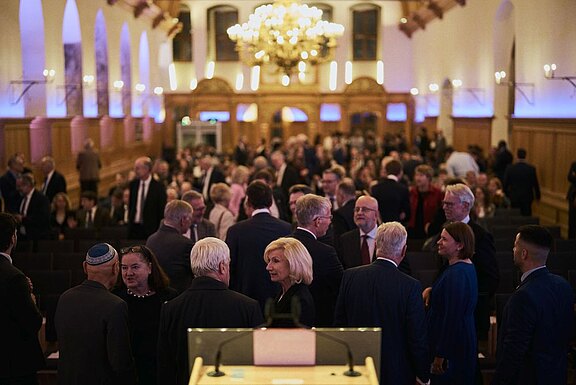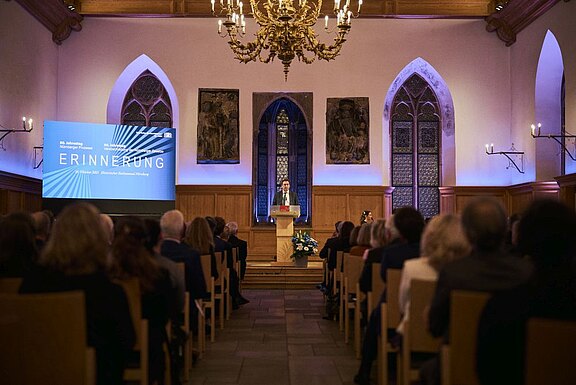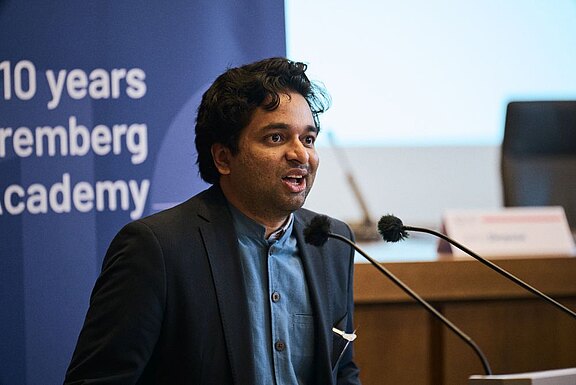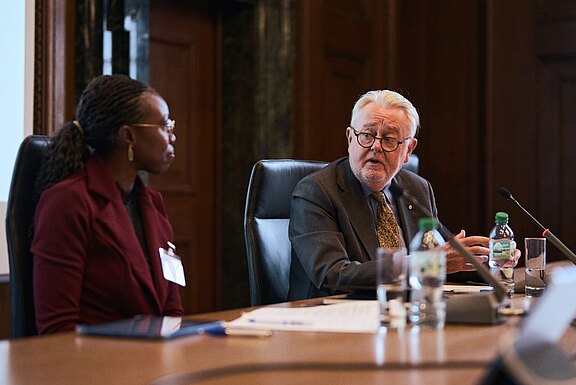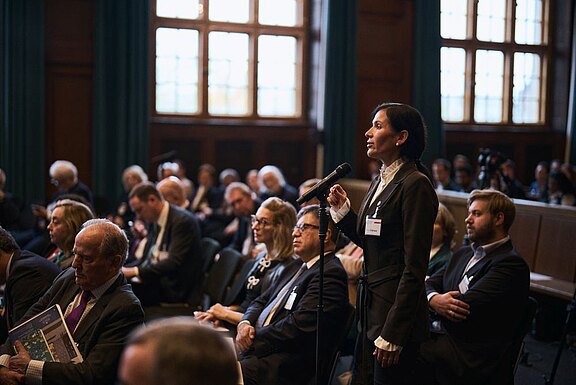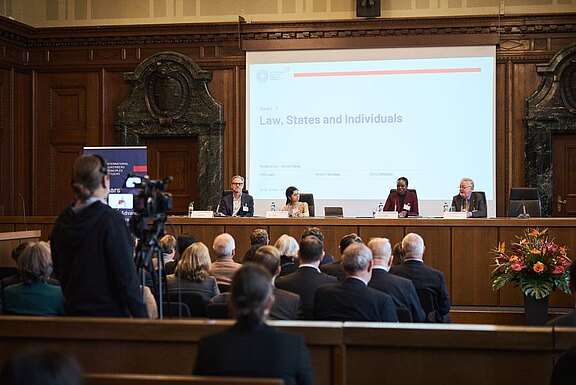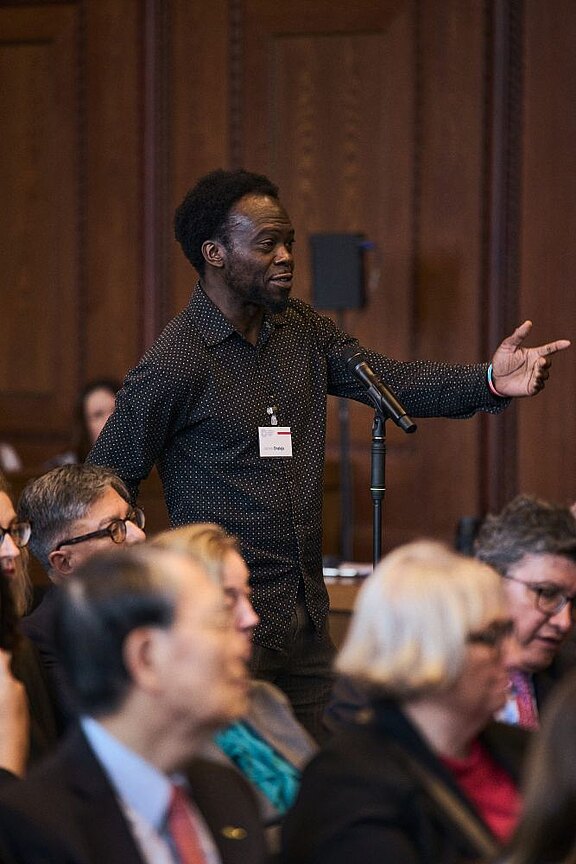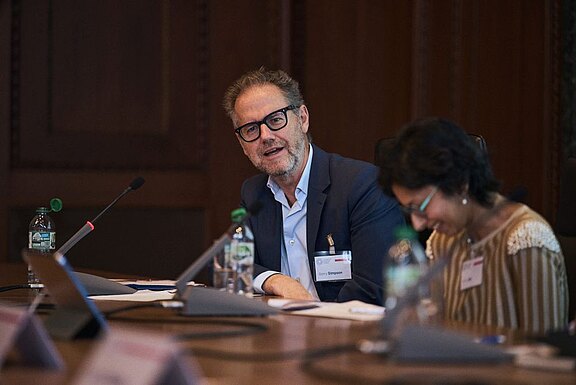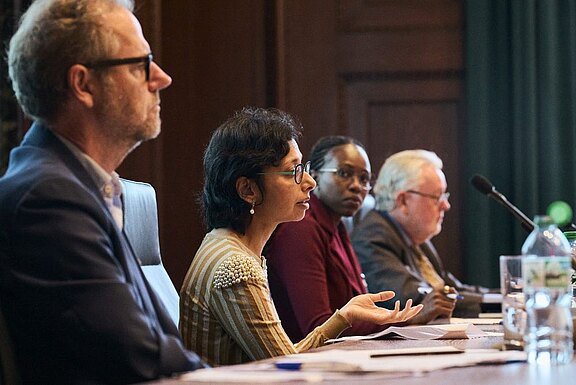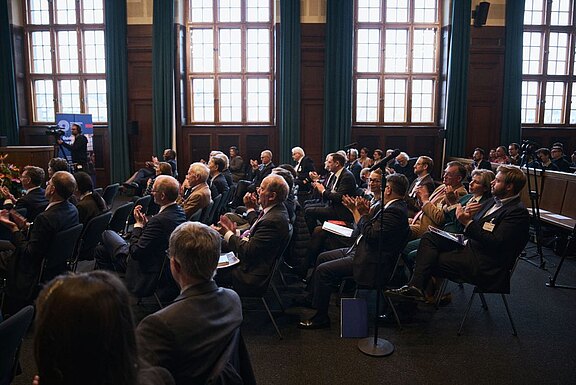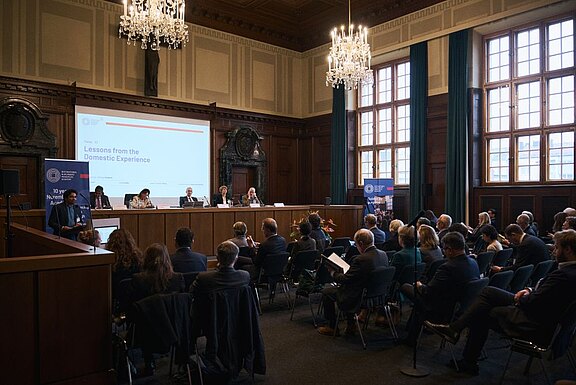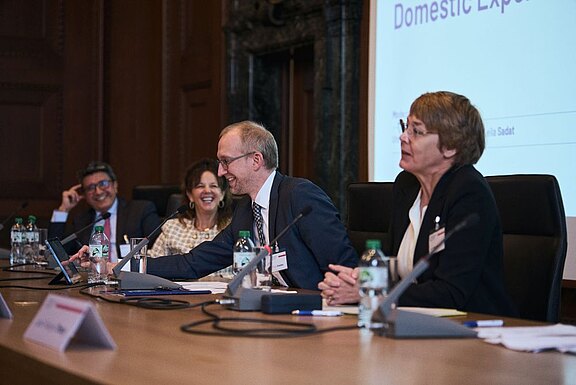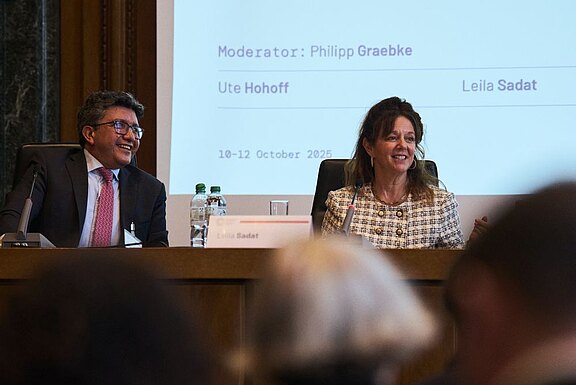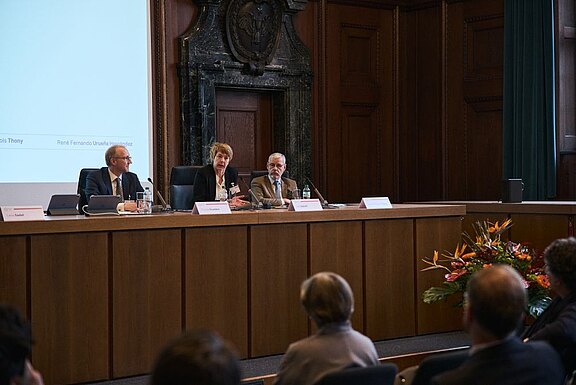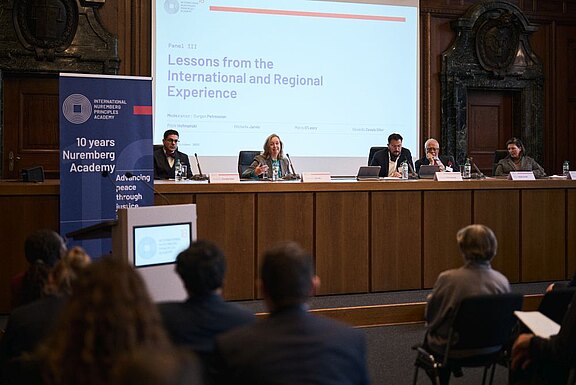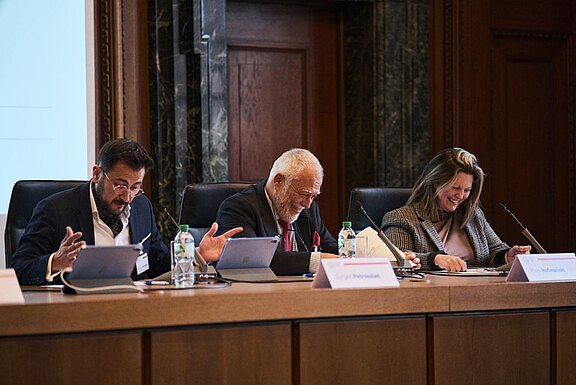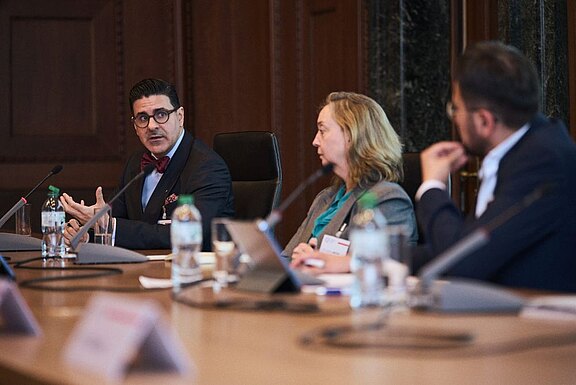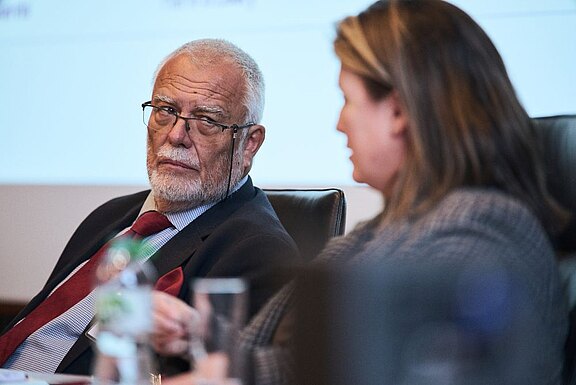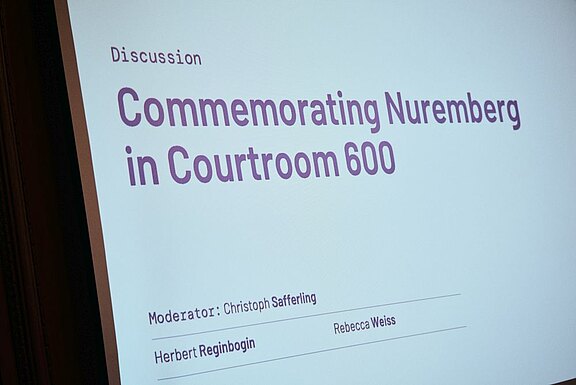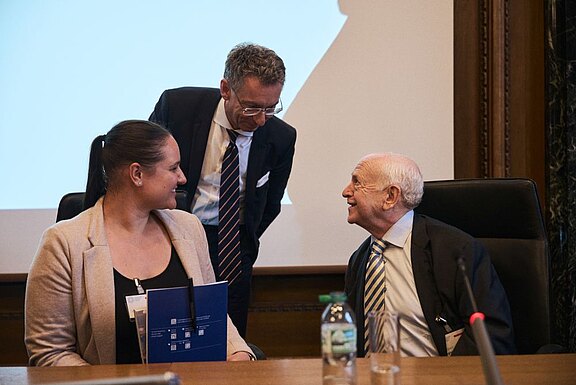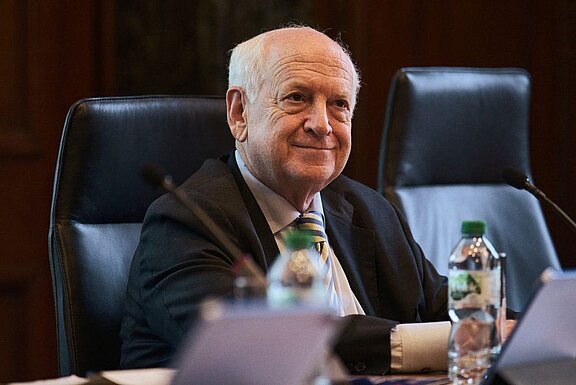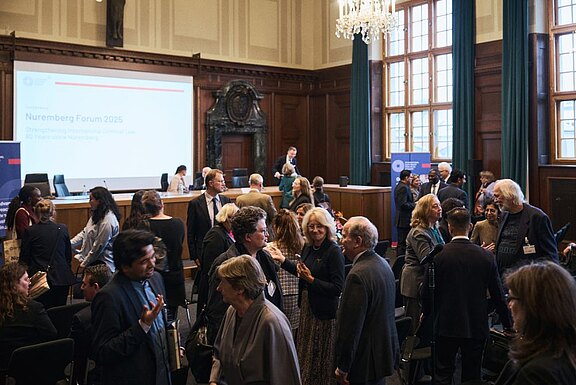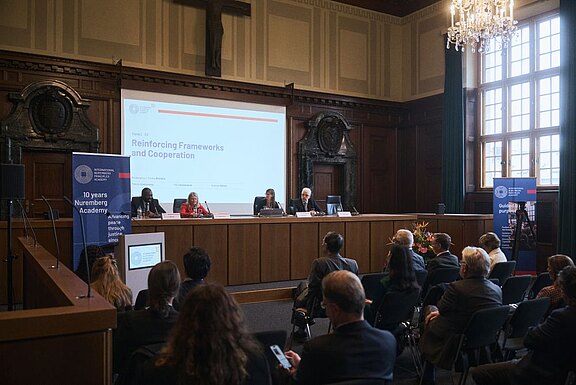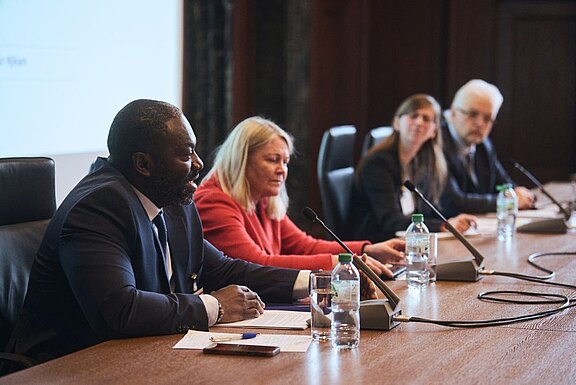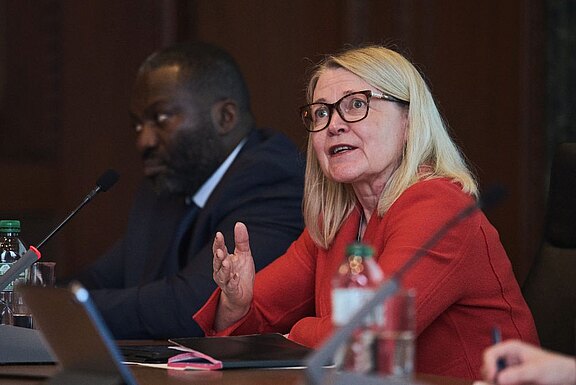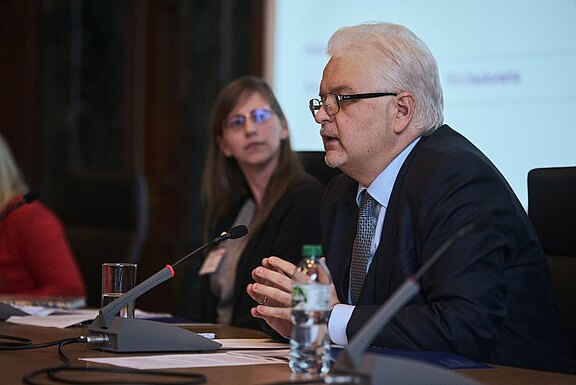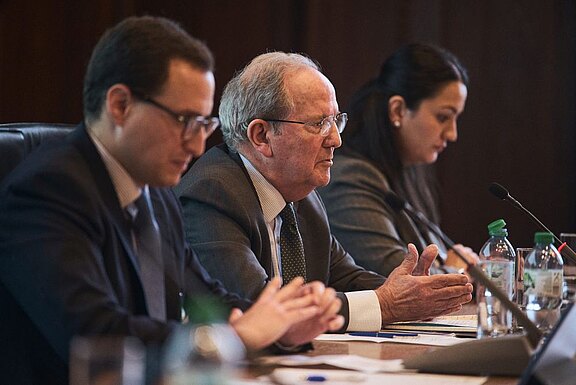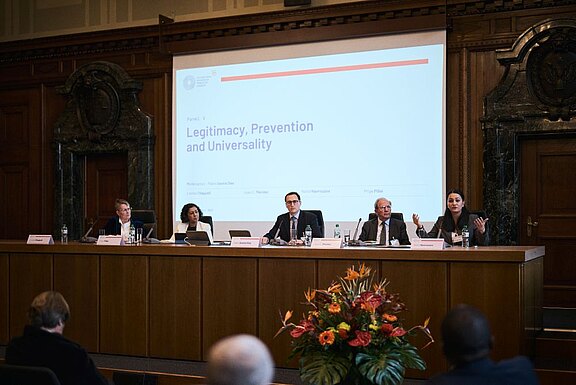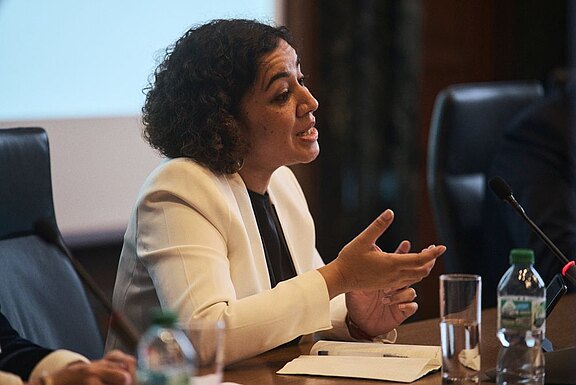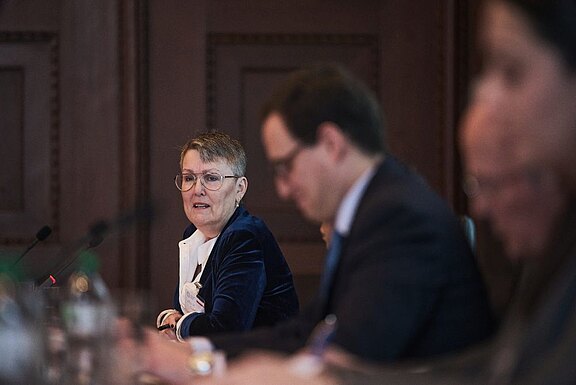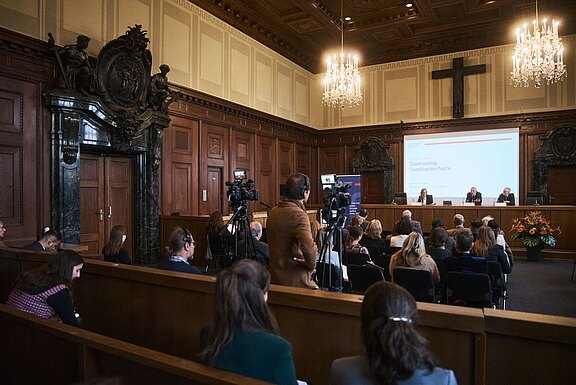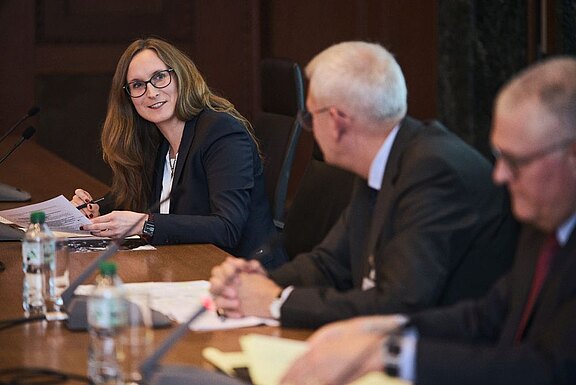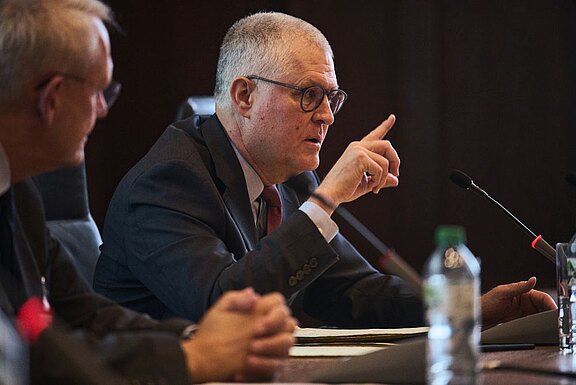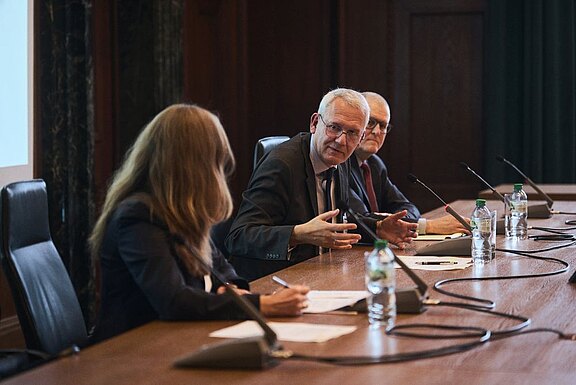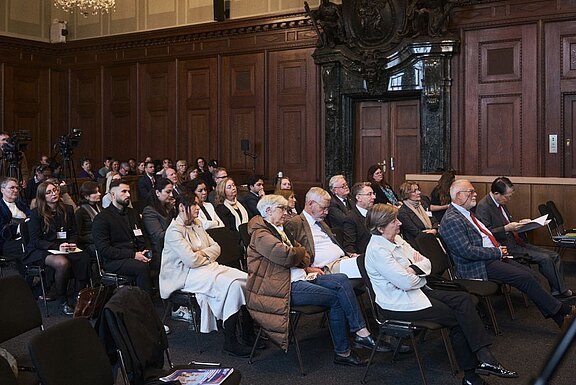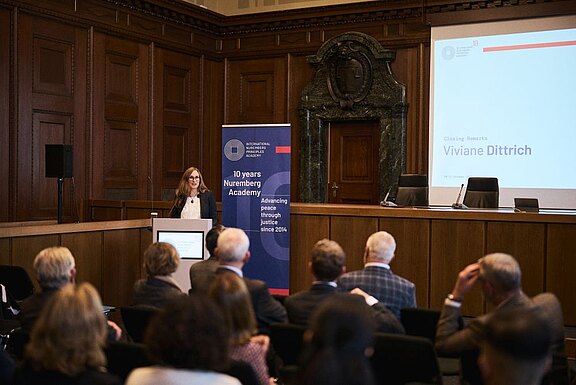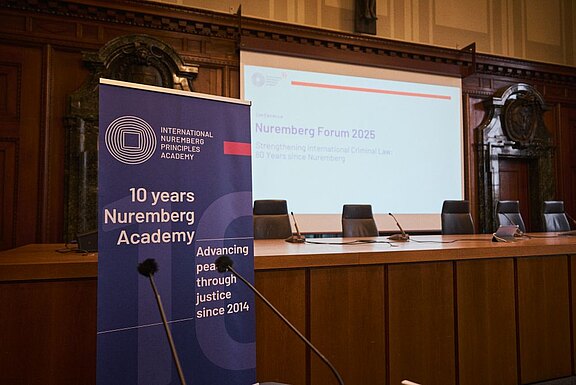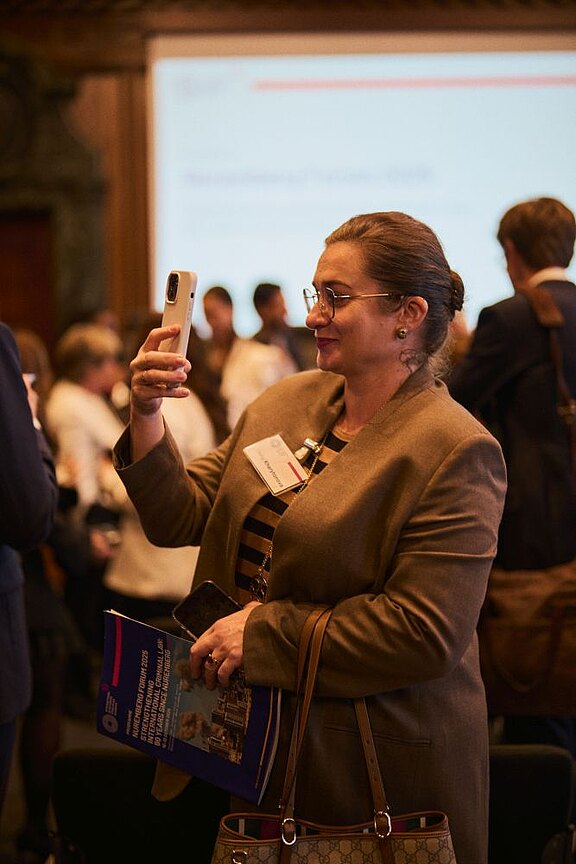Introduction
The Nuremberg Forum 2025 examined strategies for strengthening international criminal law´s development, implementation and enforcement. Drawing lessons from the Nuremberg trials and other pioneering international, regional and domestic proceedings, the panellists reflected on the historical evolution of the law´s foundational norms and procedures. The discussions contextualised the key challenges faced by international criminal law today and elaborate on the role of courts, the UN, states, civil society, survivor communities and other key stakeholders in confronting them. We assembled a distinguished roster of speakers for the event. Senior Officer Kiran Mohandas Menon moderated the conference.
The Nuremberg Forum 2025 was composed of an opening discussion, keynote addresses and five panel discussions.
· Opening Discussion: Peace and Justice 80 Years since Nuremberg
In the opening discussion, Professor Juan Mendez reflected on the importance of civil society for increasing protection and humanitarian assistance in conflict situations. He also stressed that the importance of fostering domestic jurisdictions to better implement international law. Judge Graciela Gatti Santana also reflected on how mobilising civil society was a crucial component for achieving peace. She further noted that a judgment was not the end of the judicial process due to the importance of archiving evidence in a survivor centric manner.
· Keynote Addresses
In the first keynote, Silvia Fernández de Gurmendi noted that “the architects of the Nuremberg Trial never intended it to be a solitary milestone in history”. Instead, she emphasised that they “envisioned its precedent and legacy as dynamic—capable of adaptation, growth and ongoing development”. In the second keynote, Elinor Hammarskjöld stressed that international law was vulnerable not just due to “outright rejection by some countries, but also from the hesitation of others to uphold international legal institutions”.
· Panel I: Law, States and Individuals
This panel moderated by Darleen Seda, Senior Officer for Training and Capacity Strengthening analysed the impact of the expansion of individual criminal responsibility on international law´s approach to the attribution of state and individual responsibility. The discussants also explored the tensions and uncertainties that continue to affect questions of functional and personal immunities, remedies and the the use of force.
· Panel II: Lessons from the Domestic Experience
This panel moderated by Phillipe Graebke, Research Associate at the Friedrich-Alexander-Universität Erlangen-Nürnberg explored the fundamental lessons and trends that have characterised domestic experience(s) of prosecuting international crimes. The discussions highlighted the innovations and contestations witnessed in the domestic sphere in relation to substance and procedure, intersectional victim-engagement as well as in the proliferation of universal jurisdiction proceedings seen in multiple jurisdictions.
· Panel III: Lessons from the International and Regional Experience
From the ad hoc tribunals to the ICC, international and hybrid courts and tribunals remain among the most visible and potent manifestations of the Nuremberg legacy. The panel moderated by Dr Gurgen Petrossian, Senior Officer for International Criminal Law focused on their jurisprudence, primary normative and procedural innovations, fair trial guarantees, engagement with victims, witnesses and civil society, as well as the organisational and political considerations that influenced their functioning.
· Discussion: Commemorating Nuremberg in Courtroom 600
This panel moderated by Dr Emma Brandon, Project Officer, focused on the international, regional and domestic efforts required to counter pushbacks and faltering support for the ICC and other international and domestic bodies mandated to further accountability for international crimes. The role of mutual legal assistance, technology, the role of “third countries” and local and community engagement was given due consideration.
· Panel IV: Reinforcing Frameworks and Cooperation
This panel moderated by Dr Emma Brandon, Project Officer, focused on the international, regional and domestic efforts required to counter pushbacks and faltering support for the ICC and other international and domestic bodies mandated to further accountability for international crimes. The role of mutual legal assistance, technology, the role of “third countries” and local and community engagement was given due consideration.
· Panel V: Legitimacy, Prevention and Universality
The rise in international crimes committed across the world calls into question the preventive function of international criminal justice. This remains the case despite the Rome Statute much like the Torture Convention(s) and the Genocide Convention having an explicitly deterrent objective and purpose. This concluding panel moderated by Dr Pablo Gavira Díaz, Project Officer, clarified methods to improve international criminal law´s preventive capabilities as well as addressed critiques concerning legitimacy and selectivity that continue to affect its acceptance.
· Closing Discussion: Confronting Totalitarian Pasts: 80 Years since Nuremberg
In the closing discussion moderated by Deputy Director Dr Viviane Dittrich, Professor John Barrett and Professor Andreas Wirsching reflected on the importance of international law and moments such as Nuremberg for confronting totalitarian pasts on institutional and societal levels.
The event was recorded on video and is available on the Academy's YouTube channel.
For further information on the content and composition of the conference, please consult the programme.
For inquiries regarding the Nuremberg Forum 2025, please contact Kiran Mohandas Menon, Senior Officer at kiran.menon@nurembergacademy.org (km)
Downloads
